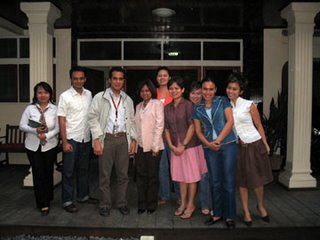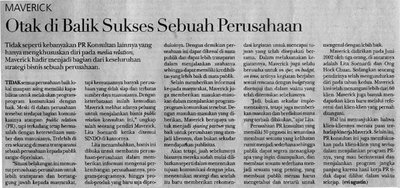
He went to an international conference/course for journalists in Seoul, South Korea, some time ago, meeting and sharing experience with other journalists from other parts of the world. In his presentation, M. Sarwani spoke about Global Communications with sample of cases from China, India, the Americas and Korea.

Maverick always has an intimate relationship with the media, as Ong himself was a journalist. In the past half year, Maverick has welcomed two more journalists as its associates. And we're expecting one of Mas Sarwani's colleagues from Bisnis Indonesia to join us soon.




